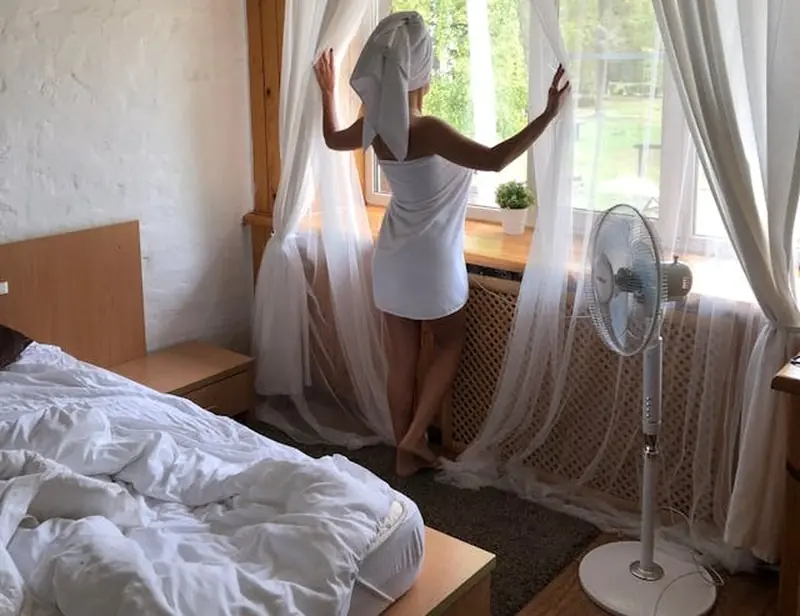
Global warming has increased the number of hot days and nights, reviving an archaic trend of using fans. These devices are easy to operate and typically cost less than air conditioners. However, they come with a host of hidden dangers.
Dr. Nahid Ali, a senior medical researcher at Vera Clinic in Turkey, believes that running a fan in the bedroom all night creates “hidden stress for the body.” He warns that the operation of this cooling device poses health risks.
Dryness in the Nose and Throat
The doctor confirms that using a fan throughout the night leads to the drying out of nasal passages and the throat. It’s no surprise that during the day we often feel nasal congestion and irritation in our throats.
“Dry airways produce thicker mucus, which traps allergens and irritants near sensitive tissues. Over time, this can lead to coughing, hoarseness, or blocked sinuses,” Dr. Ali explained.
Infections and Allergens
He acknowledges that a fan can make it easier to sleep on a hot night by cooling the skin and speeding up evaporation. However, as the doctor emphasizes, the constant airflow stirs up dust from the bed and floor. Tiny particles of lint, skin flakes, and pollen float around, penetrating deep into the airways while we sleep. For individuals suffering from asthma or allergies, these particles can trigger excessive sneezing, as reported by the Daily Mail.
Joint Pain
According to Dr. Ali, prolonged exposure to cold air can lead to waking up with pain in the neck and shoulders.
“Chilled muscles tense up (this is the body’s natural defense), and this tension can persist until a warm shower or gentle stretching restores normal blood flow,” the expert noted.
What If You Can’t Live Without a Fan?
If turning on the fan is the only solution for a comfortable night’s sleep on a hot night, Dr. Ali recommends using a timer. Set it for the first sleep cycle of 90 minutes so that it turns off after you fall asleep.
The doctor also advised directing the airflow from the fan away from the bed and towards the opposite wall. Additionally, keep a glass of water on your nightstand to hydrate your mouth if needed.
For those who are sensitive to dust, it’s advisable to clean the floors in the rooms more frequently and wash bed linens weekly to reduce the amount of lint, skin flakes, and pollen indoors.
Meanwhile, for those who don’t use fans, there are several helpful tips to ensure a good night’s sleep on a hot night.
Keep Skincare Products in the Fridge
Storing creams, serums, and face masks in the refrigerator can make your nightly skincare routine more enjoyable thanks to the cooling effect.
Use a Water Spray
To lower your body temperature without a fan or air conditioner, you can mist your face, neck, and wrists with cold water using a spray bottle.
It’s also beneficial to slightly dampen your duvet covers, mattresses, and pillows to keep things cooler.

